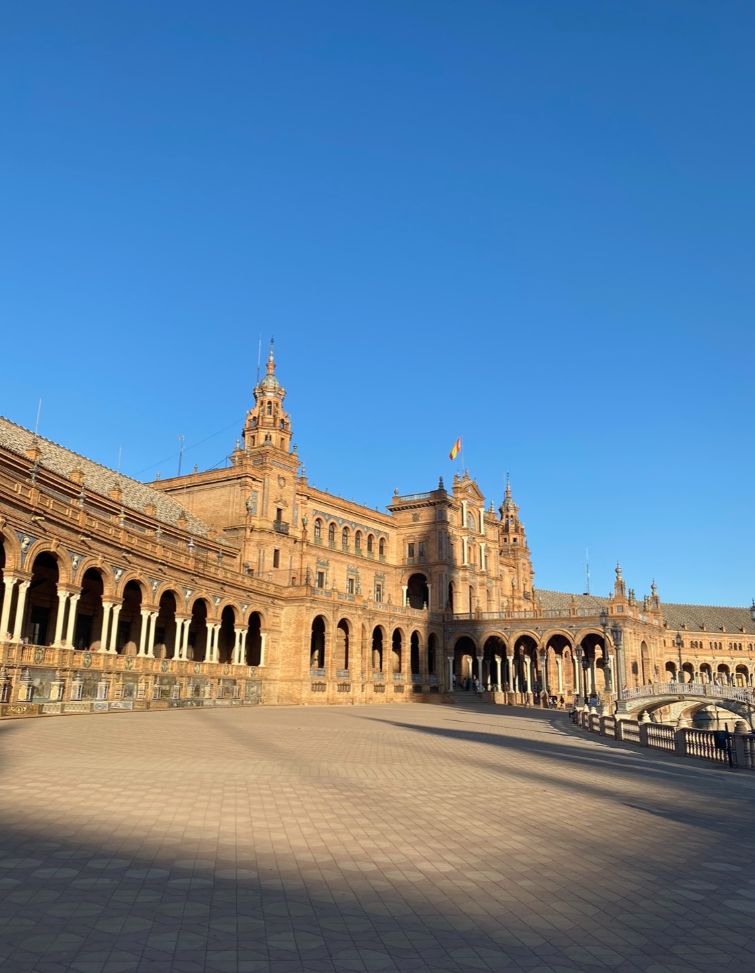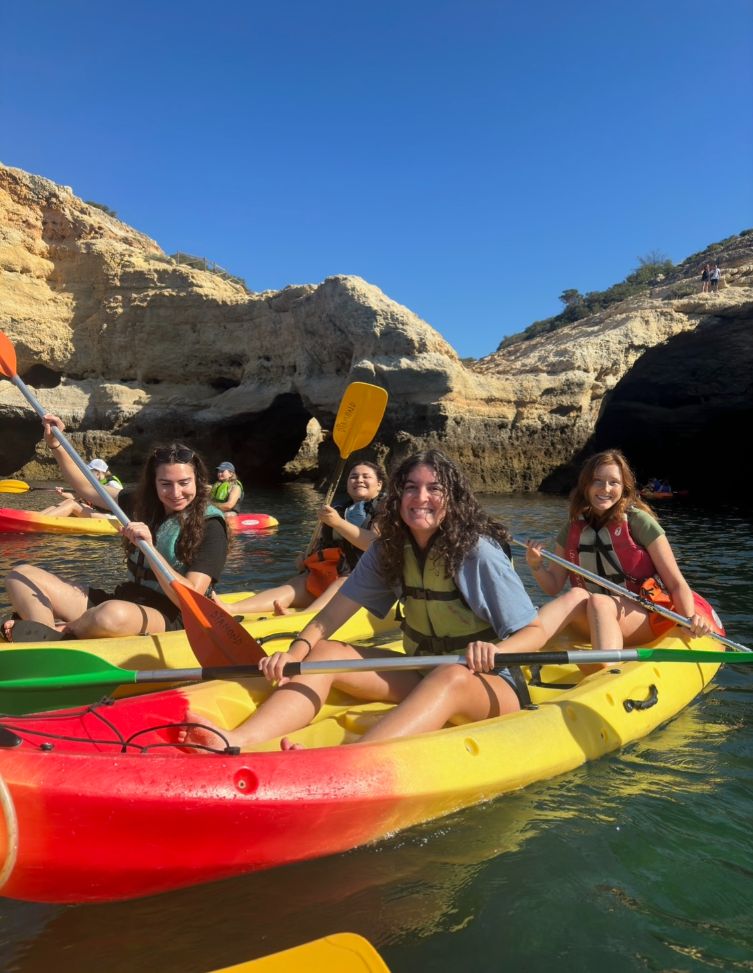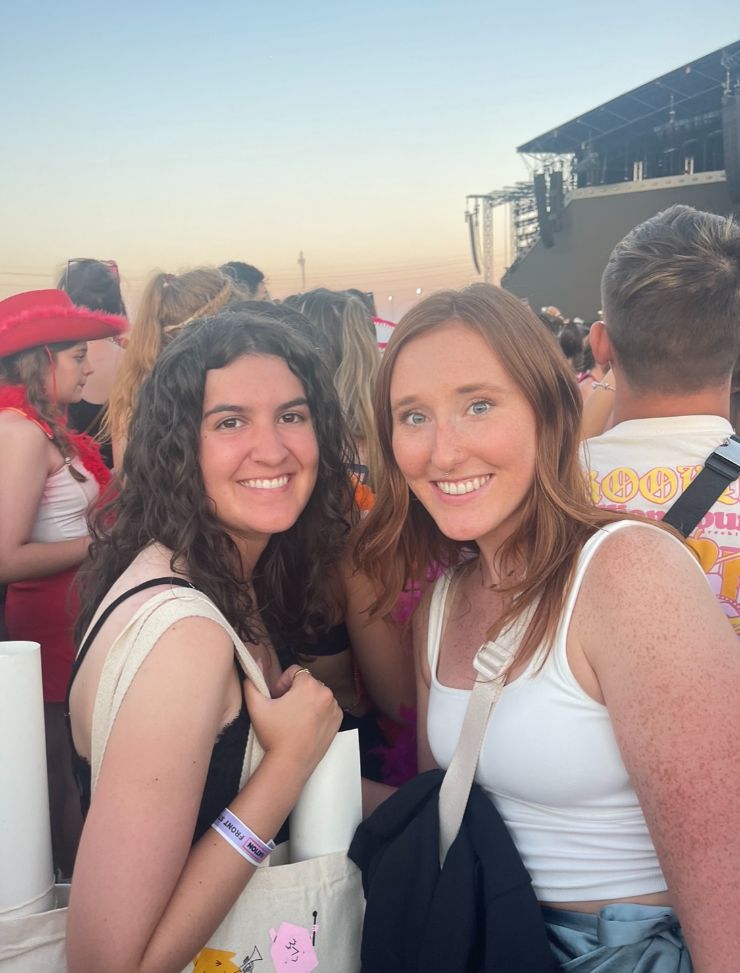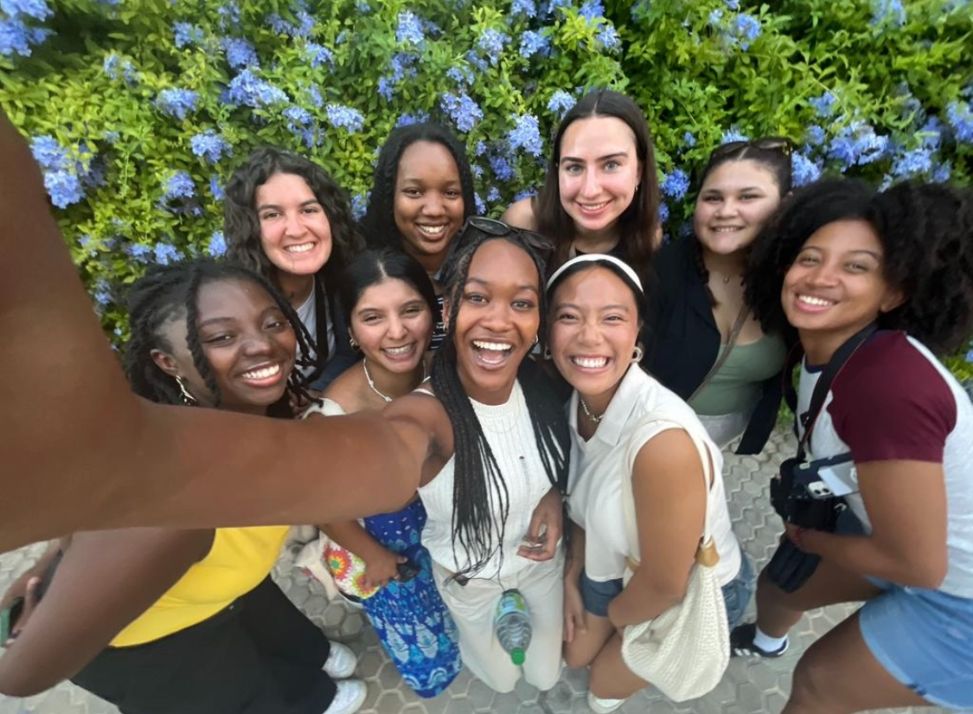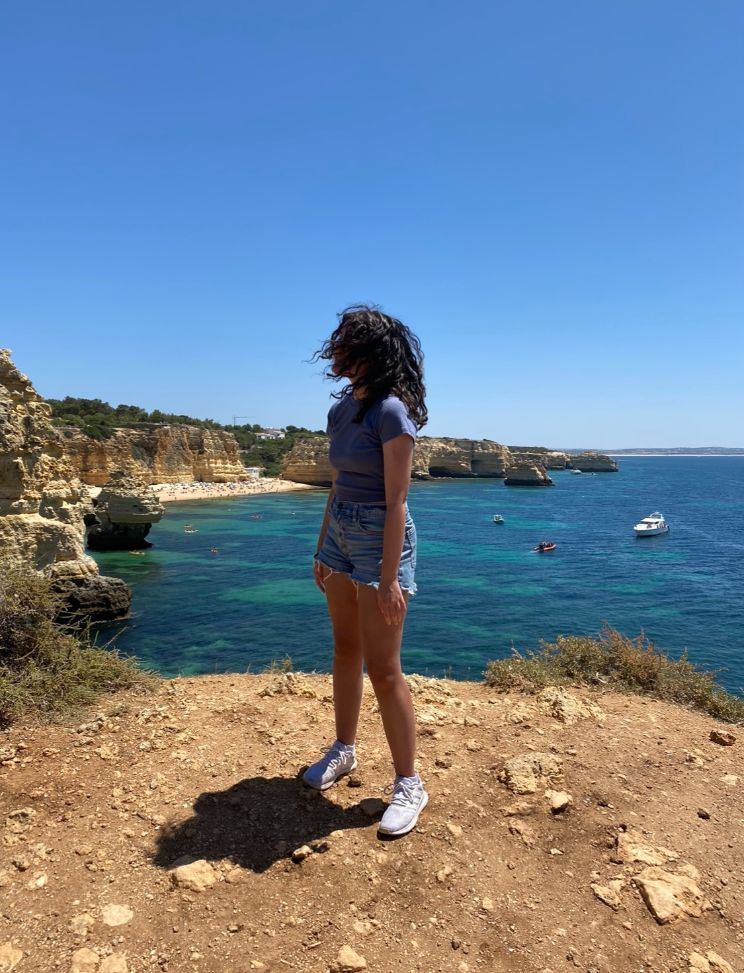Ava Stephens
About My Study Abroad Program
Major/Minor: Majors: Biology & Neuroscience; Minor: Data Science
Program: UNC Science in Sevilla
Location: Sevilla, Spain
Email: astephens@unc.edu
Term: Summer 2023
Why did you choose to study abroad and how did you select your program?
I made the decision to study abroad to not only further my academic pursuits but to also further my personal development. Choosing this particular program at UNC offered me a unique opportunity to not only immerse myself in a new culture but also uphold the university's academic excellence. My passion for Spanish, cultivated over five years, and my inherent fascination with its rich culture led me to choose this program. It promised an adventure beyond my comfort zone, where I embraced new customs while honing my language skills. Additionally, this program perfectly aligned with my passion for studying stem cell biology. As someone driven by a strong interest in cancer research, I deeply understand the crucial role stem cell research plays in advancing our knowledge in this field. By participating in this program, I had the opportunity to further explore my dedication to developing life-extending treatments and innovative technologies. Moreover, studying abroad in Spain provided me with valuable insights from individuals with diverse backgrounds, enriching my educational journey. I believe that an educational environment that offers various opportunities for learning would promote important qualities such as resourcefulness, adaptability, and resilience. These traits are essential as they thrive beyond the boundaries of comfort zones. In today's interconnected world, it is crucial to expand our perspectives by embracing diverse cultures and viewpoints. This immersive experience not only enhanced my ability to contribute to international genetic/cancer research projects but also helped me grow into a well-rounded and enlightened individual.
What did you learn about yourself?
During my study abroad experience in Spain, I discovered facets of myself that were previously obscured. Immersing myself in a country where Spanish wasn't spoken as my native language unveiled an innate resilience within me. This transformative journey taught me the invaluable lesson that overcoming language barriers and adapting to unfamiliar environments was not only possible but also immensely rewarding. It shed light on the fact that if I could thrive in such a challenging setting, life back in my home country offered a level of comfort and familiarity that had been underestimated before. The program also demonstrated my adaptability. By living in a foreign culture for an extended period, I discovered my ability to adjust, establish connections, and embrace new experiences. This realization was crucial as it affirmed my tenacity and open-mindedness to fully engage with diverse environments. Moreover, the experience ignited a longing for new possibilities and adventures. Initially overwhelming, the idea of an entire semester abroad now appears both achievable and alluring. The obstacles overcome and successes achieved during my time in Spain have bolstered my confidence to seek out longer international opportunities. In the end, the journey proved transformative, fostering personal growth while broadening perspectives and enhancing self-confidence. It highlighted my adaptability, resilience, and a yearning for more immersive cross-cultural experiences in the future.
What is one of your favorite memories from your program?
One cherished memory from my program was the bus ride after our incredible kayaking adventure through the Benagil caves. Despite starting at 4 a.m., our exhaustion was overshadowed by a feeling of wonder and camaraderie. Covered in sand and sea spray, we reveled in the magic of the experience, fostering a profound bond. As we headed back on the long bus ride, a sense of camaraderie filled the air. Laughter and tired smiles were exchanged as we played games like MASH, forming bonds that felt timeless and meaningful. Our plans for future adventures in Sevilla began to take shape, fueled by the shared excitement of our newfound friendships. In that moment, it became evident that these bonds were meant to surpass the program's boundaries. The bus ride perfectly embodied the essence of our shared journey – conquering obstacles, marveling at nature's wonders, and forming relationships that surpassed sandy clothes and early mornings. I knew then that when we made our way back to UNC Chapel Hill, all of us would be determined to maintain these connections we formed during the trip. This memory encapsulated the very essence of studying abroad – a beautiful tapestry of shared moments intertwined with lasting friendships that would endure beyond the shores we left behind.
What advice do you have for future study abroad students?
For future students navigating uncertainties abroad, my advice is to embrace the journey and push yourself beyond your comfort zone. Uncertainties are inherent in any transformative experience but they present opportunities for resilience and self-discovery. It is crucial to maintain an open mindset, viewing each challenge as an avenue for learning, adapting, and developing life skills. Building a support network is also vital when studying abroad. One should connect with fellow peers, both locally and internationally, to not only establish a local network of support but also to cultivate a sense of camaraderie. Seeking guidance from previous participants and utilizing the resources provided by the study abroad office can offer valuable advice and assistance in navigating through challenges. Embracing the culture and engaging with locals can provide deeper perspectives and broaden personal development. Approach challenges with an open heart, seeking support when necessary, and having confidence in your ability to emerge from these experiences stronger and wiser than before.
Memories
